This is the first episode on The Inquisitive VC Podcast, which you can find on all major streaming channels including Spotify, Apple Podcast, Google Podcasts and more! Over the next few months we will also attempt to publish the audio of some of our older conversations while working to bring on exciting new guests 🚀
Make sure to subscribe and rate the podcast so that we can keep bringing you conversations from the best founders and investors! 🙏
Madusha is the founder and CEO of Expo Labs, an Auckland-based venture studio. Currently, Expo Labs is building and scaling in-house brands but will soon invest in and help grow other products and technologies.
Previously Madusha was a founder of EMGN.com, an entertainment, media and gaming site which in 2015 was the 15th most viewed mobile website in the USA. After successfully exiting EMGN, Madusha went on to grow a range of successful e-commerce businesses.
We talk about his journey scaling EMGN, bootstrapping vs raising VC, crypto, e-commerce and more!
NA: Thanks for joining. I thought it would be great to start with how you started EMGN and then started to essentially go into that full-time and start building it out as a proper business?
MA: Yeah, sure. So, with EMGN, it was a site that I was running from quite a young age. I was in Intermediate when I first started it, so I would have been about 10-12 years old. It just started as a little gaming blog that I was running, after school and started getting quite a bit of momentum. I was seeing actual money coming from it for the first time, which was, you know, quite a thing at that age.
I sort of started getting into that world of online advertising, monetizing websites, you know, SEO at the time was big, still is, but not as relevant, I would say. But it was one of those things that just started growing because it was always something I was interested in.
To give a background on what it was, EMGN was basically a viral news site. If you're familiar with Buzzfeed, it was quite similar to that. What we did was we created, basically any news that was out there, we created short-form, easy to read digestible, viral pieces on them.
We monetized it through Google ads on different platforms. We promoted it quite heavily through Facebook ads and influencers. It was generating quite a lot of traffic. We were seeing 10 million a day at one point, which is some pretty insane numbers, and in our best year, we did close to $20 million.
So it went from this thing that I did after school to something pretty massive.
NA: How'd you decide to get into it full-time and start building it like a real business, rather than a side blog thing that you started to do.
MA: Well, I got to uni and I wasn't very impressed with uni. I was studying programming at uni and it was just not really what I wanted to be doing. I always had this passion for the news area and publishing in general. So, that’s sort of what led me into saying, “Hey, let's give it a shot, let's try give this more time and let's see if I can make this work”. That was 2013 and, yeah, it exploded from there.
I mean within a year we had, I think five full-time staff and then within two years we had a team of 15.
NA: How did you get towards the stage of thinking about, if you want to grow this into a bigger business, think about raising funding or, eventually lead you to the sale of the business? What was your thought process on how to decide which way to kind of go forward with?
MA: Yeah, the funding route was something we were always looking at. Basically, we were seeing a lot of the companies around us that raised big numbers. I think Buzzfeed raised about $20 million, so it was something we were considering. One thing that we thought about was, we'd like to have to relocate to the US if we were to do that. Again, back in those days, I mean, especially with that industry in New Zealand, there weren’t many investors in NZ that would have been too keen on it.
That was sort of where we decided, an exit might be something that we'll look at. I mean, we ran it from 2013 to the end of 2016, so a good three years. That’s sort of when we were deciding on the exit because things were changing with Facebook. Along those times you'd basically have zero organic reach. You would have to pay Facebook if you want anything out.
There was also a whole bunch of things with Facebook, sort of filtering certain things, right? For example, only CNN will be seen on your feed and the smaller sites wouldn't really be seen. So, there was a lot going on that side of things.
We could see the writing on the wall with how that was going. We were sort of in this area where we had to be paying Facebook for traffic to our site. Right? It was sort of a no brainer at that point with seeing where it was going and we'd say, “Hey, look, now is probably the best time to exit.”
Looking back on it, it was a really good decision. A lot of the sites, a lot of the competitors were wiped out completely, or they are still in that sort of route towards trying to raise more funds and just trying to survive at the moment. So, there was sort of a good decision looking back on it, and it was probably the right time.
NA: It's great that you went through that whole process in an accelerated time period, three years is quite quick for you to go from, you know, from a really early-stage company to ending up exiting it. How did you essentially deal with that speed of growth? You know, in three years you said you hired five full-time staff.
How was that process from, you know, not really running a business before to hiring, managing, and then eventually negotiating exits?
MA: Yeah, at our peak, we had 15 people actually. Most in the writing department or full-time writers. I mean, it was pretty crazy. We never went into it thinking it will grow that fast, from zero to $20 million a year, which is insane. and it was completely bootstrapped. We didn't raise a single dollar funding. We didn't really go into it expecting that, it was quite a surprise to us.
NA: For sure. Let's talk about what you decided to do after EMGN. You ended up selling it and then how did you decide what to do next?
MA: Yeah, that was interesting. I wanted it to stay in digital marketing. I mean through EMGN I had racked up about, close to $12 million in Facebook ad spend.
Just myself, managing the ads for EMGN. So, I had quite a bit of experience behind me. At that time, E-commerce was booming, right? E-commerce sites for everywhere. There was a big thing with dropshipping as well back in those days, when that was all just starting and growing, on Facebook.
So that's sort of where I transitioned into e-commerce, it's sort of an extension of what I was already doing and it just seemed like the perfect fit.
NA: Yeah. Fair enough. And how have the businesses you've built in that space over the past few years being, what are your experiences with it?
MA: E-commerce is so a massively growing area. There's still a lot of growth left. I think the, I mean the latest stats, I think more than 50% is still offline transactions and retail. So, there's still a lot of growth left, and this whole COVID thing has accelerated all that thought. There's still a ton of high growth there.
In terms of my businesses, we've had a lot of success. I mean, some of the biggest ones, Slick Lane, which grew to 30,000 customers within its first two years. Right now we've got, EzToned which is a at-home fitness brand, we've done within the first year, just over $2 million in revenue, New Zealand dollars. Pretty good, again these are all bootstrapped brands, and there's a lot of growth potential left in all of them.
Yeah, it's quite an exciting time and there's a couple of new brands we have launched as well. One being Turbist, which is a hair towel brand, and that's also had a great success. We have sold out within the first couple of months and now we are looking and grow that a bit further. So, it's an area that I think has a lot of potential and growth left in.
NA: Could you just quickly give an overview of what Slick Lane is?
MA: Oh, yes Slick Lane, is a men’s streetwear brand.
NA: Me and you were discussing a while ago about the future of digital advertising and how that's really changing now with people being able to, you know, block tracking from websites like Facebook and how that impacts advertisers.
I'd love to hear your thoughts on that and how you think that is going to impact advertisers. And then what is the future of digital advertising?
MA: Yeah, it's an interesting thing because Facebook, well, not Facebook, sorry. Apple is really trying to restrict what information advertisers have access to. So far they started rolling out, on iOS, I think 14.4 I think it is. What it does, essentially it stops Facebook from being able to track you as an individual user. So you just sort of be put into a basket and you'd just be known as any other Facebook user. Whereas right now they can sort of see almost everything you're doing, and they can also track outside of the app. They can see more and they know what you're buying, even if you're not using the Facebook app. So, it's basically just a restriction on all of that.
While I think it will namely affect small business, you know, people that just jumped on the Facebook platform, you know, they’re not too experienced, they are just looking to grow their business online. I think those are the people that are going to get hit the most in this.
The ones that have been in the game for a while, I don't think it will impact. So, it's really just, it's going to be an interesting thing to see how it plays out. We haven't seen the full effects of any of this yet, with Apple and the changes they're doing.
It's a very interesting time, but I think the way you get around it is doing what I believe is what you should always be doing is producing great content, right? Putting out great ads, that really capture peoples attention. That is what we've always been focused on and what we're going to continue doing.
An example of a high-quality piece of content produced by Expo Labs and EzToned
Right now, there's a lot of arbitrage, you know, people, just jumping on the trying to make a quick buck on Facebook ads. There's been a lot of opportunity where people are just capitalizing on all the information Facebook has. They can jump on there and launch an ad and it just works, because of all the data Facebook has, they just click that publish button and, “Hey, I've got four sales, five sales. “It just works.
Whereas that is now going to change and it's going to become a bit of a content race. Better your content is, better your ads are, that's how you going to have to stand out. Whereas before businesses were really relying on the information Facebook has.
So that's why I'm saying that it's really going to impact small businesses that are just, you know, they've just got a banner ad they've done through fiver or whatever. They just launched it; it's not only going to work. But the guys that know what they're doing is not going to impact.
So, it's sort of a bad thing for small business really.
NA: Yeah. And what do you think about, you know, there's a lot of conversation about how it's important to build a community around products, and businesses. So, what are your, what are your thoughts on building a community versus creating great content?
MA: I mean with, community, I think content plays a big part of that. Cause content is how you communicate with the audience, right? So, that's sort of how you speak to the audience and that plays a big part in building that.
Definitely, I think building communities around brands is a big thing. It's something that we’re focusing on big time right now with EzToned. We were putting up these, 12-week fitness challenges and, we've got a bit of a Facebook group going, getting people into that. We've got this competition that we've been started to run. The best transformation on there will win cash prizes.
So, things like that, just building community around your brand, building a good following around your brand is always going to be a big thing, but the content definitely plays a big role in building that.
NA: Let's talk about Expo Labs and what you plan to build with that side of the business.
MA: Expo Labs is the newest venture, we launched it last year. At the moment what we are doing with that is that we are building a good team of talent to support the businesses that we're running at the moment.
For EzToned, for Slick Lane, for Turbist, for Fly as well, we didn’t actually touch on Fly. So, it's really just building a pool of talent to help grow our brands a lot faster at the moment. The eventual goal of that is to turn into a venture studio.
We are essentially going to be looking for stage startups, early-stage to begin within the e-commerce sector. What we want to be doing is investing early and then using our machine, which consists of, you know, the talent and the team and the processes that we built to help grow those companies a lot faster.
That's really the big goal with that, but right now it's, it's helping power our current brands because that's the focus at the moment.
NA: When do you think it would be open to new startups?
MA: Well, I was saying Q2, and we're now just getting into Q2, but, we're probably going to push that back a bit further because we are focusing a lot more on, growing EzToned at the moment, growing Turbist at the moment, which have a lot of growth potential left.
It might be more close to the end of the year. It's already something that I’m starting to look at. Me and you had had a few discussions around this as well. It's one of those things that I really do want to get into quickly, but our current brands are the priority
NA: For sure. Being a founder who's built a bootstrapped business has done that again with your e-commerce businesses, what kind of advice would you give a founder thinking about bootstrapping their business versus raising funding.
MA: It's interesting because it depends on what industry you're in as well because with some things it's hard to bootstrap. But if you're looking at e-commerce you can achieve profitability fairly quickly with a low budget and that's the beauty of e-commerce. But yeah, I guess it really does depend on what they are doing?
I'm quite lucky to be in an area where it can be done fairly easily.
NA: What would you say is the hardest thing about identifying what kind of e-commerce business to start as in what product to sell, how do you come to that decision?
MA: We do a lot of research in any given area that we are looking into. What we do is that we jump in and we see what ads they're running. It's as simple as that.
We go in and go, “Hey, are these guys doing their ads properly?”, and it comes down to that. let's say with Turbist, I'll give a great example. We had looked at the market, there was basically no one that was running ads for this particular kind of product and scaling it through Facebook.
Like there was one brand who were selling it through TV, but other than that, we couldn't find a single brand that was able to create a winning ad and scale through Facebook. We saw it as an opportunity, we jumped in, we had a great product, it’s a very unique product and we do believe it's the best in the market as well.
We spent a lot of time building it and we were able to scale and scale-out through Facebook when it looks like no one else is doing that. So, we mainly look at the ads and what were people doing already and then we try to improve on that quite significantly.
NA: What are your thoughts on dropshipping now? You mentioned at the point that you started getting into e-commerce it was a relatively big thing. Is that still the case or it's kind of dying down now?
MA: I mean, yeah drop shipping comes down to just a method of fulfilment, right. So, it's still something people can do and make big money on, but it's not something I would recommend, these days and that's mainly due to how much of an importance Facebook puts on customer satisfaction.
They have things like feedback score that they've introduced. So, the main thing we look for is to make customer satisfaction is as good as possible and that means fast shipping times, right? So, with drop shipping, traditionally you see 30 days, 40 days shipping times and that is something that we think is no longer sustainable in this current market and how quickly things have changed.
In 2016, even big e-commerce brands didn't have great shipping, right? If you were in New Zealand, and you were buying from a US company, most of the time it will take 20 days. So it wasn't a huge difference, but now everyone's got access to these third-party logistics centres, that you can just jump on with zero sales.
What that's done is it means everyone has access to fast shipping. You don't have to be Amazon to get fast shipping, you can just jump onto one of these logistics partners and access fast shipping.
So, the competition has evolved completely. So, if you are still drop shipping and providing your customers with the 40 day shipping times, you are going to get left behind and what's normally going to happen is those customers are not going to come back to you. It's not a long-term sustainable thing with those sorts of shipping times mainly.
NA: That's a great insight. I know you've gotten into crypto recently. I'm keen to hear if you've thought about how crypto is going to impact e-commerce?
MA: Yeah. It's interesting. It's a sector that me and you have discussed for so long, and you're quite deeply involved in as well. It's something I've just gotten into recently a lot more, even though it’s something you've been telling me to get into for quite a while. In terms of e-commerce, it's hard to say.
I mean, mainly because at the moment the adoption isn’t, it's there, but it's not huge adoption. There's PayPal that's getting into it now. I'm sure you've heard of this, but PayPal’s launching their merchant payment system and what that allows is for any e-commerce brand, they can basically just click a button and start accepting cryptocurrencies.
I think they're launching with Bitcoin, Litecoin and a couple of others. That alone is going to be quite big for it, but it's still a case that most people at the moment, prefer fiat currencies. So, at the moment I'm more sure, but there are projects that are sort of changing the game in this space.
I’m not sure if you heard of GDT, they are called Guaranteed Access Token, and what they do, it's NFTs for event ticketing. They have sold 600,000 tickets online so far, through their tokenized tickets. It's sort of taking on Ticketmaster, right?
Because with Ticketmaster, there are scalpers that can jump on and just grab tickets and resell them. With this system, they can't do that, because your tickets are tokenized, and there can really be one owner. It's a very cool system. So, things like that are coming in through the blockchain that are interesting, but there isn't a massive shift just yet, I think, but it's definitely coming,
NA: As an e-commerce business operator. how would you decide if you would accept crypto as payment or not?
MA: For me personally, it's a no brainer. I think like, why not? We don't see any downside in it. So, I guess it does come down to personal preference and if the business can take that risk because they can be a little volatility. For us, we'll be on board as soon as PayPal allows it.
NA: Fantastic. To kind of wrap it up, I have a couple of quick questions. One is, what's a secret obsession of yours that not a lot of people know about?
MA: It's an interesting question. I guess it’s ads. I obsess over ads. I almost religiously follow, the sort of the top directors and what they're producing. I'm always sort of looking to up my game that, cause I'm a strong believer that's sort of the big thing that separates brands. So, it's something that I'm always looking at to see what sort of ads are these brands producing?
How can we get to that sort of level? What can we be doing to improve on those things? That's something that I obsess over a lot.
NA: That's interesting. What advice would you give a first-time founder?
MA: I would say these days, there's a lot, especially on Instagram of these sort of overnight success stories of people just, you know. There’s so much, there are so many gurus out there promoting this sort of get rich quick sort of mentality. I feel like that's sort of a downfall of a lot of entrepreneurs these days.
Especially young entrepreneurs that sort of jump in and they're just looking for a quick buck. I would say that's, I mean, that's the mindset coming into it you're probably gonna have a lot of problems to start off with. I would say it takes a long time, it takes a lot of grinding, takes a lot of work to create something that's long-term and sustainable.
So, I would say stick to it, find some value adds you, love, right. That's the first thing and stick to it. Just keep doing it, don't ever give up on it. Just keep doing it. Because those breakthroughs will happen. You might be sitting on a billion-dollar unicorn, but you know, if you’ve given up too early on it, that where the problem is
NA: That's some great advice. Well, that’s it, thanks for joining. I’m looking forward to putting out this episode.
MA: Cheers bro. Good to chat!
You can follow me and Madusha on Twitter here!
Intro & Outro soundtrack from - https://www.purple-planet.com







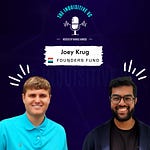
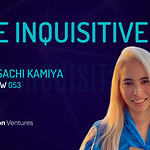

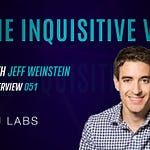
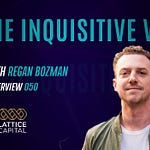
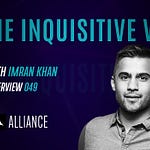
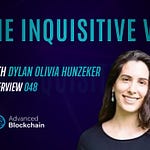
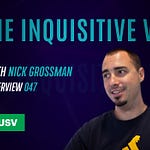
Madusha Adasooriya - Exponential Labs